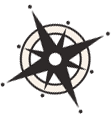Erosion of coastal bluffs is a serious issue for many Great Lakes communities in Wisconsin. Utilizing these resources can help local officials and property owners become more resilient to bluff erosion hazards.
Getting Started

Living on the Coast
Wisconsin Sea Grant and the U.S. Army Corps of Engineers-Detroit District
A booklet describing natural coastal processes and strategies to manage risk to coastal properties. It is essentially Coastal Engineering 101 and a go-to resource to help people to get a broad understanding of the issues facing their property.

Southeastern Wisconsin Coastal Resilience Project
Wisconsin Coastal Management Program, Wisconsin Sea Grant, UW-Madison Department of Civil and Environmental Engineering, and the Southeastern Wisconsin Regional Planning Commission
This project provides resources and assistance to southeastern Wisconsin communities in Ozaukee, Milwaukee, Racine, and Kenosha Counties to plan and prepare for coastal hazards. It is organized as a coastal resilience community of practice for local officials, scientists and outreach specialists to learn about, share experiences with and develop approaches to plan and prepare for coastal hazards.

This video educates current and future shorefront homeowners about the risks of owning property subject to natural hazards. Drawing on a case study of several homes damaged by a 2002 landslide in the village of Oliver in northwestern Wisconsin, it illustrates the risks associated with bluff erosion and emphasizes the importance of planning for natural hazards.
Understanding Coastal Erosion Processes

Coastal Processes Manual: How to Estimate the Conditions of Risk to Coastal Property from Extreme Lake Levels, Storms, and Erosion in the Great Lakes Basin
Wisconsin Sea Grant
This manual provides step-by-step instructions on how to estimate risk to Great Lakes coastal property from extreme lake levels, storms and erosion. It helps landowners, developers, insurers, lenders, and prospective buyers evaluate the condition and risk associated with property on the Great Lakes. The third edition was published in 1998 and is being updated through a post-graduate fellowship program run as a partnership between Wisconsin’s Coastal Management and Sea Grant programs.
Assessing Vulnerability

Wisconsin Shoreline Inventory and Oblique Photo Viewer Map
Association of State Floodplain Managers
Explore how the Great Lakes coasts of Wisconsin have changed since 1976 by viewing beach and bluff conditions, oblique photos and coastal erosion rates.
Policy Options for Local Officials

Adapting to a Changing Coast: Options and Resources for Local Officials in Southeastern Wisconsin Coastal Communities
Wisconsin Sea Grant
This publication identifies 28 options across 4 themes to help local government officials address changing water levels and storms on Lake Michigan.

Managing Coastal Hazard Risks On Wisconsin’s Dynamic Great Lakes Shoreline
Association of State Floodplain Managers for the Wisconsin Coastal Management Program
Provides several adaptation strategies for managing the risks to coastal development and resources.

Protecting Coastal Investments: Examples of Regulations for Wisconsin’s Coastal Communities
Brian Ohm, UW-Madison Department of Planning and Landscape Architecture
This is a resource guide of ‘best practices’ for Wisconsin’s Great Lakes coastal communities dealing with coastal erosion. It describes the causes of coastal erosion and suggests ordinance language that can be used by communities to address locally identified needs. The appendix is an inventory of current coastal setback provisions found in local ordinances in Wisconsin.

Minimizing Bluff Top Development Risk, Ozaukee County Data
Association of State Floodplain Managers as part of the NOAA Digital Coast Partnership
Explains bluff erosional processes, the factors that cause and exacerbate erosion, and the risks associated with building too close to the bluff through a case study in Ozaukee County, Wisconsin.
Protection Options for Property Owners

Adapting to a Changing Coast – Options and Resources for Lake Michigan Property Owners
Wisconsin Sea Grant
This publication identifies 16 options across 5 themes to help coastal property owners adapt to changing water levels and storms on Lake Michigan.

Dealing with Coastal Erosion Through the Spectrum of Erosion Control Methods
Woods Hole Sea Grant and Cape Cod Cooperative Extension
Shares a range of coastal erosion control practices in a gradient from lower to higher cost, environmental effect and impact on adjacent and downdrift properties.

Great Lakes Shore Protection Structures and Their Effects on Coastal Processes
Wisconsin Sea Grant
Fact sheet describing shore protection structures and their effects, both positive and negative, on the shoreline.

Fact sheet describing shoreline erosion and slope instability.

While intended for design of the types of structures most commonly constructed in Lake Erie in Ohio, this manual demonstrates how coastal engineering principles can be applied to achieve a balance natural resource protection and the needs of riparian property owners.

Vegetative Best Management Practices: A Manual for Pennsylvania/Lake Erie Bluff Landowners
Pennsylvania Coastal Resources Management Program
This manual contains information that will help homeowners develop a plan of action to manage vegetation to preserve bluff stability and minimize erosion.
Implementing Constructed Measures

Working with Engineers and Contractors on Shore Protection Projects Data
Wisconsin Sea Grant
Fact sheet describing the process of finding and working with qualified coastal professional engineers and contractors.
Obtaining Key Datasets

GeoData@Wisconsin
UW-Madison Geography Department’s Robinson Map Library and State Cartographer’s Office
This resource enables discovery and access of Wisconsin geospatial data, imagery, and scanned maps. The Coastal Collection provides access to hundreds of geospatial datasets with relevance to the Lakes Superior and Lake Michigan coasts of Wisconsin.
